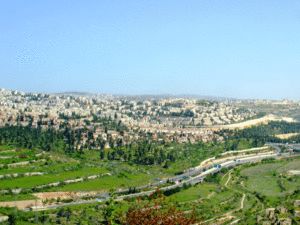As many people go off to their summer homes and the children climb aboard busses to camp, Klal Yisroel becomes reacquainted with Pirkei Avos. To be sure, according to some minhagim (see Abudraham), we have already finished this series with Shavuos, but the current custom is to continue until Rosh Hashanah (Rama 292:2). For both those who are learning full-time and the rest of us who must seize every available moment, Pirkei Avos transports us to the world even before the Amoraim. It allows glimpses into the lives of the Tannaim and their middos, life’s lessons and especially mesorah.
It is no coincidence that Pirkei Avos begins with the transmission of the Torah from Sinai until today. We are the only religion or culture that cherishes and studies assiduously the words of people who have been gone for thousands of years. Of course, we do this every day when we learn any Gemara or sugya. But when we immerse ourselves in Pirkei Avos, we make a point of emulating the actual people we are quoting. Pirkei Avos is replete with the phrase “hu hayah omer,” literally “he used to say.” Many early commentaries explain this pithy phrase to mean “he was what he said.” It is true that even gentiles will criticize someone for “talking the talk but not walking the walk.” But every summer we turn to our sages for advice and mandates for how to live. As the meforshim tell us, the list at the beginning of Avos is to remind us that not only halachos – the legal guidelines of Judaism – come from the Torah. No, even and sometimes especially the so-called moral and ethical teachings flow equally from our mesorah.
Since we have already entered a highly wired and even emotional political season, allow me a moshol from that world. There have been less than fifty American presidents from various states and parties. Would anyone dream of asserting that there is a mesorah from George Washington to Joe Biden? Although there are myriad volumes about these leaders, highlighting their accomplishments and failings, no president or his staff has ever attempted to link the entire list to themselves and their goals or aspirations. If anything, in the current climate, even the so-called founding fathers are under assault, with statues and buildings being pulled down and renamed because of unhappiness with their legacy. Pirkei Avos is an opportunity for us to do the opposite. Many excellent editions provide some biographical and ancillary material to remind us of the lives and other teachings of each of these giants. The summer is not only a pathway for preparation for the Yomim Noraim, but a time to let the sun shine on our faces as we reflect upon the great light the Tannaim have left us on these pages.
Although we are stressing these opportunities during the summer because of the minhag Yisroel, we must note that these studies should not cease after the summer either. The Zohar Hakadosh (2:82b) states that every part of the Torah teaches something about life that can improve our middos and character. In fact, the Rambam (Hilchos Temurah 4:13) codifies this when he states that “the majority of the laws of the Torah are eitzos (advice) from the One Above to rectify our minds and mend all of our actions.” This means that when we perform Hashem’s commandments, even if we don’t realize it at the time, our minds, hearts and souls are improved and uplifted by each mitzvah. However, when we study Pirkei Avos, this is the stated goal. We open this sefer in order to become better, in order to imitate and try to be, to whatever extent we can, like those who are teaching us.
Thus, Rav Chaim Palagi (in his Sefer Einei Kol Chai) writes that “one should train himself to learn Pirkei Avos all the time. The words may be brief…but they flow from the hearts of the lofty holy people who spoke and wrote them.” The Vilna Gaon, too, in his famous letter to his family, did not limit the study of Pirkei Avos to this time of year, but simply instructed them to learn these precious Mishnayos. Interestingly, the Chida (Sefer Maris Ha’ayin) teaches that the Avos is not simply a title, as are other appellations. It is telling us that just as a father teaches his children by word and example how to live, Avos is our virtual father. It provides us with a living, breathing guide to life itself.
We can readily see this approach to the study of Pirkei Avos from one of its Mishnayos itself. The Mishnah (3:17) states that “masores seyog laTorah – The transmitted Oral Torah is a protective fence for the Torah.” Rav Yosef Yaavetz offers a fascinating interpretation of this Mishnah that goes to the heart of the entire work. He says that “if one is handed a mesorah – a tradition – he is obligated to hand it down to the next generation to the point where the tradition never ceases.” In other words, Pirkei Avos is our mandate to continue the holy transmission of the Torah forever and eternally.
Based upon this revelation, I would like to venture the suggestion that it is for this reason that the sages extended the Pirkei Avos learning period from Shavuos to Rosh Hashanah. Since the teachings of Avos go to the heart of being a Jew and transmitting the mesorah, it had to reach out and touch the time when we are being judged. Clearly, during the hallowed days of Tishrei, we are judged upon our actions. But we are also going to be judged on the larger issues, such as our being links in the great chain of mesorah. Did we connect the generations? Did we transmit not only the words, but the nuances of what we were given? As Chazal say, “Did our actions connect to those of our ancestors?” These words, too, have been interpreted to mean that while it is impossible to copy exactly those who came before us, did we try at least to hang onto their coattails? This is the legacy of Pirkei Avos.
Rav Nosson Gestetner (introduction to his commentary on Avos Lehoros Nosson) adds a layer to understanding the word Avos. He suggests that as the first Mishnah in Bava Kamma teaches us, there are four Avos Nezikin, meaning that just as these “Fathers” are general rules that will be broken down into thousands of details, so are the Mishnayos in Avos general rules for how to run our lives. Rav Yaakov Kamenetzky, in his own introduction (page 10), adds that each learning session of Pirkei Avos begins with the statement that we are all tzaddikim. This assertion is to remind us that Pirkei Avos is for all of us. We are the bearers of the only unbroken tradition from Hashem to all the generations. We have been invested with the mandate and the ability to transmit this to our children, students and all upon whom we have influence. Perhaps we can add that during the summer, when we have a bit more time, we have been deputized to work on this wonderful shlichus that we have all been granted from the Creator Himself. What a zechus this is! The King Himself trusts us to give over His words, guidance, philosophy, ethics, morality and way of life. As the Mishnah this week (3:18) reminds us, “Beloved is man, for he was created in Hashem’s image… Beloved are the people of Yisroel… It is indicative of a greater love that it was made known to them.” In other words, Pirkei Avos is our greatest compliment from Hashem. He trusts us, for He has given over to us that which is most precious to Him.
Lest we become slightly arrogant with these great accolades, Rav Dovid Kviat (introduction to Sukkas Dovid on Avos, page 8) reminds us that even Moshe Rabbeinu retains no titles at the beginning of the list of this mesorah in Pirkei Avos. He is simply referred to as Moshe, just as we are reminded that it was the tiny modest mountain of Sinai upon which the Torah was given and the mesorah began. We must be humbled, although not overwhelmed, by the mandate of learning and living Pirkei Avos. Hashem taught us humility when He created us after declaring to the angels, “Let us make man.” This was not a royal we, but a humble we, to teach us that despite the grandeur of being the pinnacle and purpose of creation, we must keep our sense of perspective and remain humble.
Perhaps, during the summer, when we chance to look up at the sky and magnificent universe, when we count the clouds and marvel at their beauty, we will remember that it was all created for us, but only if we have absorbed the middos of Avos, emulating previous generations and then passing on an unadulterated and pristine version of our own living, breathing Pirkei Avos for future generations.







